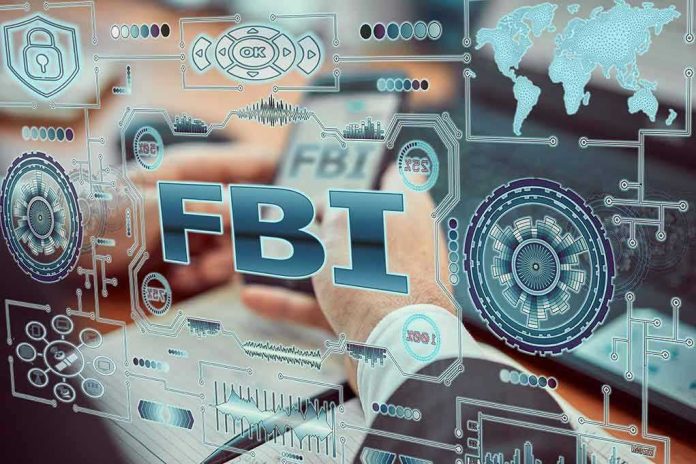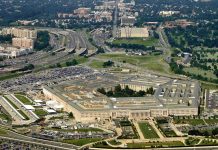
New evidence reveals the FBI may have deliberately concealed the massive digital footprint of Thomas Matthew Crooks, the would-be assassin who nearly killed President Trump at Butler, Pennsylvania.
Story Highlights
- Columnist alleges FBI misrepresented Crooks’ extensive online presence after assassination attempt
- Tucker Carlson accuses federal agents of orchestrating cover-up to hide violent digital posts
- FBI Director Kash Patel defends investigation scope while denying transparency failures
- Media figures demand independent investigation into potential institutional misconduct
FBI Under Fire for Alleged Digital Cover-Up
Prominent columnists and media figures are challenging the FBI’s handling of the Thomas Matthew Crooks investigation, alleging federal agents deliberately misrepresented the assassin’s substantial online activity.
Miranda Devine and Tucker Carlson have presented evidence suggesting Crooks maintained an extensive digital presence filled with violent rhetoric, directly contradicting initial FBI statements that portrayed him as having minimal online activity.
This discrepancy raises serious questions about whether our federal law enforcement agencies can be trusted to provide accurate information to the American people during critical investigations.
Evidence Points to Extensive Online Radicalization
Screenshots and account records obtained by journalists reveal Crooks posted threatening content across multiple platforms, including violent imagery and extremist rhetoric that other users flagged as concerning.
His YouTube account was suspended just one day after the July 13, 2024 assassination attempt, suggesting platform operators recognized problematic content that federal investigators allegedly overlooked or ignored.
The timing of this suspension, coupled with the subsequent disappearance of digital evidence, fuels suspicions that a coordinated effort existed to sanitize Crooks’ online history before the public could scrutinize it.
These revelations directly contradict the FBI’s initial assessment that Crooks had little meaningful online presence. Federal agents seized 13 digital devices and examined 25 online accounts during their investigation, yet somehow failed to adequately characterize the scope of his digital footprint to the public.
This pattern of withholding crucial information mirrors previous instances where federal agencies have prioritized narrative control over transparency, undermining public trust in institutions that should serve the American people honestly.
Investigation Scope Fails to Address Key Concerns
Despite FBI Director Kash Patel’s claims that the investigation involved over 480 staffers conducting more than 1,000 interviews, critics argue this massive effort failed to produce satisfactory answers about how federal agencies missed clear warning signs.
The investigation officially concluded that Crooks acted alone, but this determination rings hollow when fundamental questions about his radicalization process and digital communications remain unanswered.
Patriots deserve to know whether our security apparatus is competent enough to protect our leaders from domestic threats.
The resignation of Secret Service Director Kimberly Cheatle following the incident highlights institutional failures that extend beyond simple oversight. When a 20-year-old can position himself to nearly assassinate a presidential candidate despite having an allegedly substantial digital trail of concerning behavior, it exposes systemic vulnerabilities that threaten the foundation of our democratic process. These failures demand accountability, not bureaucratic deflection.
Media Demands Independent Investigation
Tucker Carlson and other conservative voices are calling for a completely independent investigation to examine what they characterize as a deliberate FBI cover-up. Their demands reflect growing conservative frustration with federal agencies that appear more interested in protecting their own reputation than ensuring public safety and transparency.
The fact that journalists had to independently verify Crooks’ online activity suggests federal investigators either lacked competence or deliberately concealed evidence from the American people.
This controversy represents more than just investigative disagreements; it highlights fundamental questions about whether federal law enforcement can be trusted to honestly assess threats against conservative political figures.
When agencies prioritize narrative management over factual disclosure, they undermine their own credibility and fuel justified suspicions about institutional bias. Americans who value constitutional principles and government accountability have every right to demand answers about this apparent failure of transparency and competence.
Sources:
FBI Defends Investigation Into Thomas Crooks, Trump’s Would-Be Assassin
America needs fresh investigation of would-be assassin Thomas Crooks after FBI’s bungled first probe
Thomas Crooks may have identified as non-binary on social media
Tucker Carlson alleges Trump shooter had ‘massive digital footprint’ FBI ignored



